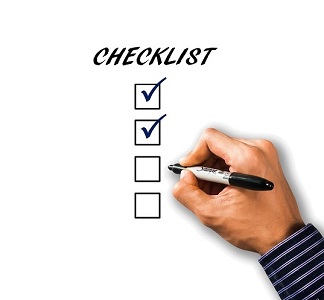Dealing with Dialect
by TJ Fritts
One element in writing that I feel is largely overlooked is the power of using dialect. Many writers don’t even consider that regardless of where your characters are from, each will use dialect cues that are specific to their origins. Using this to your benefit can strengthen the story and make it easier for the reader to develop their own ideas about your characters.
“Yesterday I was sittin’ here watchin’ TV, drinkin’ a co-cola, and I seen a ad for a tiller. I’ve been meanin’ to get one of them, ’cause I could use it to put in my truck patch. I’ll have to look on that.”
From this, you can identify many elements about this person without even one being specified. Your average Londoner doesn’t know that a truck patch is typically a small garden which produces common crops which are then sold from the bed of a pickup truck. Your average New Yorker—given no context cues—will guess for hours before understanding that a tiller is a southern title for a rotary tiller, and that a co-cola is a shortened titled for Coca-Cola. By droppin’, er, dropping the “g” from words ending “ing,” we are giving cues that this person is not from Back Bay Boston or Portland, Maine.
“But TJ, this is blatant stereotyping of humans! Not all those born in Dixie speak this way! You, good sir, are a pimple on the arse of society.”
True, but enough people where I come from do speak like that to make it a viable tool to build backstory without actually saying “Okay genius, I’ll spell it out for you: he’s from the Southern United States.” Sometimes, it’s not always a bad thing to say less so the reader can make your story more interesting with their own imagination. Without saying a single word about origin, you’ve told me that you’re not from the US. Many nations make use of the word “arse”, but if you keep talking, I can put together a pretty good profile without you mentioning geography.
“I warn you, if you continue acting like you know me, I’ll ‘ave no choice but to get my shillelagh!”
I hope your bloodlines are in the north of Ireland, I’ve heard that the weather is a bit rough around the Old Head of Kinsale right now.
You don’t have to go crazy with this method, researching Bostonian Dialect so that your “Hahvad” Grad has a perfect accent. It’s like hot sauce: a little goes a long way. Dropping an occasional word in the character’s language is giving the reader a piece of the puzzle. If you give them enough pieces they can assemble a picture of your character and you don’t have to waste words explaining things. You can then sprinkle details about your character to help the reader see your character.
“I worry, if I use a word that’s commonly associated with a nation or region, I’ll offend someone. I don’t know if Australians even use the word ‘crikey’ in their speech.”
A valid worry, but “crikey” isn’t the only Australian word that screams “G’day”. “Chock-a-block” in place of “many”, “G’day” in place of “hello”, “paddock” in place of “field”. Using occasional words that fit both the context and the dialect can allow you to give your characters depth without bombarding the reader. As writers, our job entails making the reader interested in our stories and our characters. A hundred characters in fifty stories, and all of them in the writer’s natural voice? That’s not the best way to reach our goals.
Does this mean you need to go research the Perth Region of Australia, specifically, linguistic variations to write a character from Perth? If you’re writing specifically to target an audience in the Perth Region, probably. If you’re a yank writing for a non-specific audience and you want an Australian character, no. What most people know of stereotypical Australian language patterns will serve for the job. I’m in the US, and I don’t know very much about other variations on the English language beyond a few words that are commonplace, but I know enough to write a few marginally believable characters from different locations.
“I’d like to write a character from the Punjabi region, but I’m stuck. What should I write to make her believable as a person born in that region??????”
Excellent question. Hit the search engines, research it out to pick up a general idea of the patterns, and go nuts my friend. Who knows, maybe you’ll someday write a book on implementing dialect into writing!









